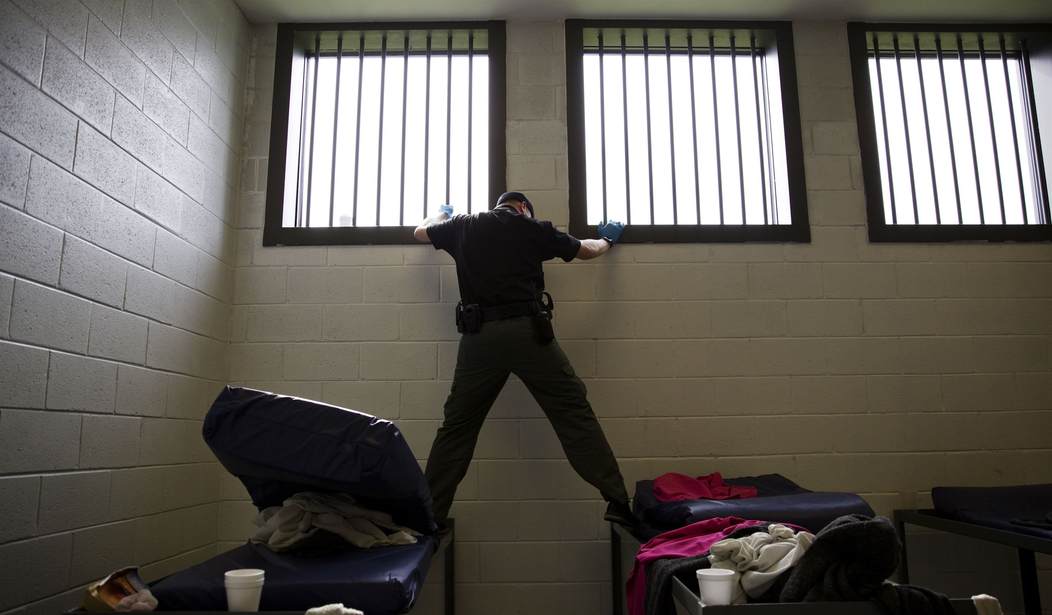Top News
Mississippi’s ban on felons voting is struck down… for now

Last year, activists in Mississippi began an effort to prevent the state’s Secretary of State from enforcing a provision in the state constitution that permanently prohibits people convicted of certain felonies from voting. Republican Attorney General Lynn Fitch rejected the request and the matter was sent to the courts. Yesterday, a three-judge panel from the Fith Circuit Court ruled in favor of the activists and ordered Fitch to stop enforcing the rule because they declared that it violates the cruel and unusual punishment clause in the federal Constitution. It was a narrow, 2-1 decision and Fitch is planning to ask the full circuit court to reconsider the ruling as soon as possible. But if this decision stands, it could have an impact on the upcoming elections. (NPR)
Mississippi is violating the U.S. Constitution’s ban on cruel and unusual punishment by permanently stripping voting rights from people convicted of some felonies, a federal appeals court panel ruled in a split decision Friday.
Two judges on the 5th U.S. Circuit Court of Appeals panel ordered the Mississippi secretary of state to stop enforcing a provision in the state constitution that disenfranchises people convicted of specific crimes, including murder, forgery and bigamy.
If the ruling stands, thousands of people could regain voting rights, possibly in time for the Nov. 7 general election for governor and other statewide offices.
The Fifth Circuit is one of the more conservative appellate courts and it won’t be surprising if the full panel reverses this decision. And in this case, it probably shouldn’t be that difficult of a call. This wasn’t just some random law that the legislature passed. The rules are spelled out in the state constitution. Also, Mississippi is far from unique in placing restrictions on the voting rights of felons. Every state except Maine, Vermont, and the District of Columbia impose some voting restrictions on felons and eleven ban them permanently as Mississippi does.
The Supreme Court weighed in on this question in the 1974 case of Richardson vs Ramirez. By a 6-3 majority, the court declared that such restrictions do not violate the 14th Amendment. And the explanation offered by the two justices on the Fifth Circuit doesn’t seem to be well-founded in Constitutional history. You can get a sense of some of Hamilton’s views on “cruel and unusual punishment” in Federalist 81, and it seems a dubious proposition that he would have included voting rights in the mix. Also, the Supreme Court was asked to review this case when it first came up and they declined.
This question does seem to be breaking down along partisan lines at the court, however. The two justices voting to end the ban, Carolyn King and James L. Dennis were nominated by Carter and Clinton respectively. Justice Edith H. Jones, who voted to keep the ban was a Reagan nominee.
None of this is to say that there aren’t some valid questions about Mississippi’s disenfranchisement rules. The list of crimes that are included in the state constitution is fairly extensive, numbering ten, and the Attorney General expanded the list to 22. For example, bigamy is on the original list, which seems a bit extreme in the current era. And the expanded list includes “timber larceny” and carjacking. I suppose a case could be made for carjacking, but should cutting down trees without a permit cost you your voting rights for life?
Even the people who fall under this prohibition have a theoretical path to regain their voting rights, but it only happens rarely. Rights can be restored via a pardon from the Governor or if the state legislature passes special legislation specific to the convict. Both have happened, but not frequently. In any event, the full court is likely to review this and particularly given the makeup of the Fifth Circuit, I would predict that they will probably overturn this result.
Read the full article here


















